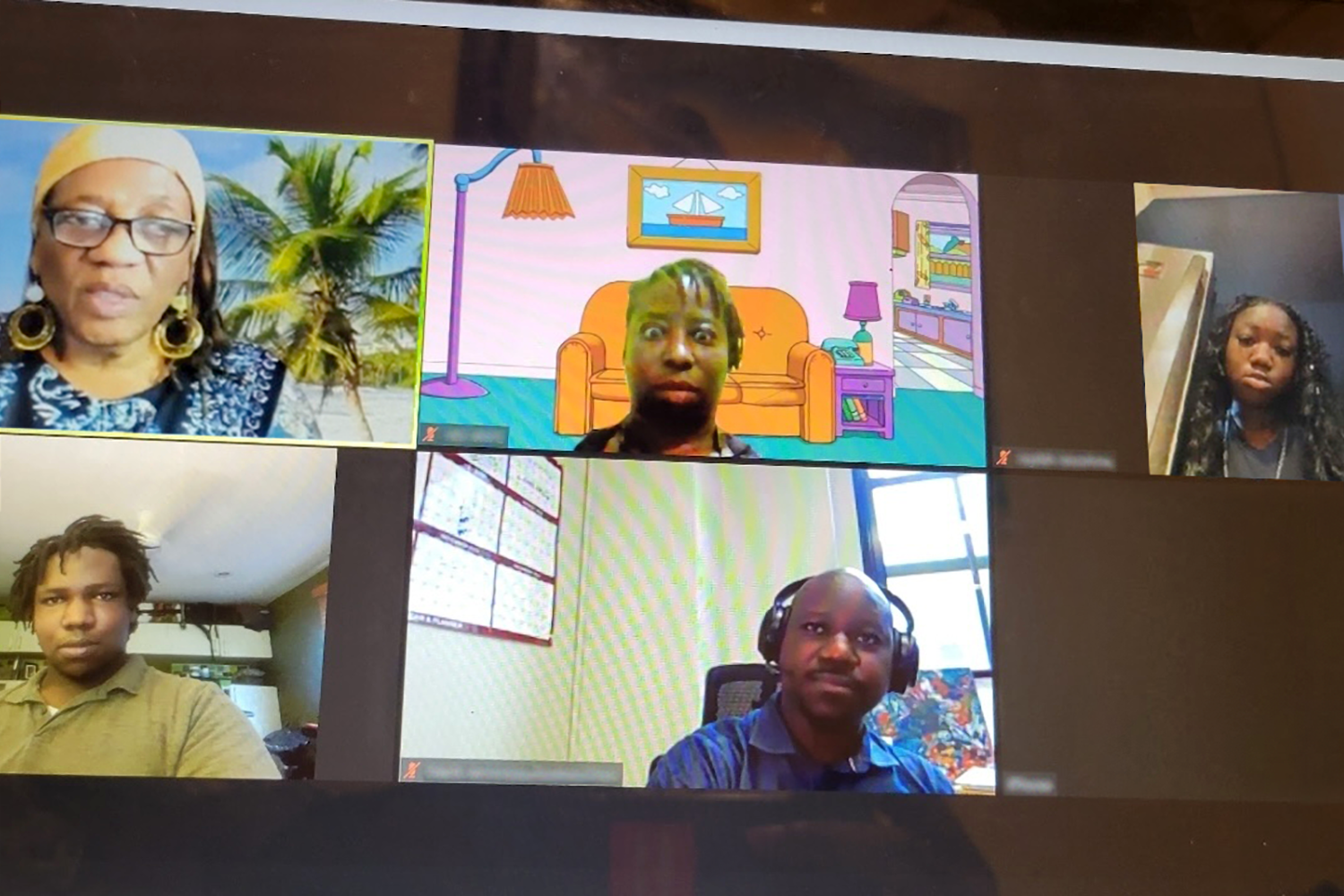
Want career fulfillment? First you must answer this critical question.
Do you want to overcome career boredom, burnout, and frustration? Do you want to find a career path that’s more fulfilling, challenging, or in line with your values? Who doesn’t, right?
If you said “yes” to any of these questions, you’ve come to the right place. The good news is you can do something about it. No matter your circumstances, there are steps you can take to turn your dissatisfaction into the career you’ve always dreamed about.
I founded my company, CAREERCompass, to help people find the very freedom and fulfillment they want from their career. Because of my formal training and extensive background in coaching and recruiting, I speak to audiences and coach clients from diverse backgrounds and levels. I’ve also helped many professionals navigate their career development and aid with all sides of the hiring equation because of my background as a hiring manager, recruiter, and candidate.
I know times are tough right now, so I’m happy to share chapter 5 of my book, Your Success is in YOU: Empowering and Equipping You to Create Your Best Career Ever.
“When values are clear, decisions are easy.” — Roy Disney
With a near 70% rate for employee disengagement in the U.S., is there a solution that can improve this challenge for employees and employers? There is, and I believe a big part of it lies in employees’ ability to answer one question: what do you want? It sounds simple, but is it?
I’ve spent 30 years interacting with job seekers, coaching clients, and speaking before audiences. As I reflect back on the thousands of people I’ve interviewed, coached, educated, and encouraged, there’s one element that has been the most consistent—most people don’t know what they want to do. Again, it sounds simple, but it’s not. Over the course of time, I have incorporated this question more frequently into my work and personal conversations. When I ask the question “What do you want?”, the overwhelming majority of people can’t answer it. Instead, they answer one of the following five questions:
1. What do you do?
2. What have you done?
3. What do you think you can do?
4. What have other people told you to do?
5. What don’t you want to do?
The problem with these responses is none of them answers my question.
What do you do?
Telling me what you do can be very different from what you want to do, and is often the case. There are millions of people doing things, but far fewer are doing things they want to do. What you do is current state, while what you want to do is future state. What you do doesn’t require you to make any changes or put forth any extra effort. What you want to do may require you to conduct a complete overhaul of your career. What you do helps to show others you’re busy—you have a lot going on—but it doesn’t show that you’re productive when it comes to effectively managing your career. You’re on the hamster wheel, but you’re not moving forward!
What have you done?
If you respond to the question, what do you want, by providing details of things you’ve already done, you’re also missing the mark. Stating what you’ve already done is past-tense, not future-tense like the question I asked. This gives you a great opportunity to share your past accomplishments, but it doesn’t begin to speak to what you want to accomplish in the next chapter(s) of your career. I believe people resort to this type of response because they’re hoping it will provide others (and themselves!) an understanding of their ability to be productive and successful in the future. They’ve been successful in the past so, of course, they’ll be successful in the future. When you respond to the question with what you’ve done versus what you want to do, it can also create a false sense of security. It may help you convince yourself that everything is okay—you have it under control because of your successful track record—when you know, deep down inside, you’re not being fulfilled.
What do you think you can do?
The most common response I get when I ask, what do you want, is what people think they can do. “I think I can do…,” “I’m thinking about trying…,” or “I could do…” Again, this avoids answering the real question. When you respond with what you think you can do or have, you’re saying you don’t know what you want or you don’t believe you can really have it. When you don’t know what you want, you come up with a list of things that are possible, hoping one of them will get you to an acceptable response. Saying “I think…” is like using a hook and bait in fishing. You throw it out, hoping it will catch something worthwhile. When you take this approach, you’re leaving your career future to chance. For many, this has been their approach, which explains why so many people are disengaged at work.
When you don’t believe you can have what you want, you’re telling the world you lack confidence in yourself or your ability to change your circumstances. This is common. Whether it’s conditioning through the words and actions of others, or through your past attempts to try something and it didn’t work, you now may have limitations (walls) in your thinking which cause you to question yourself. I understand this one well. In my earlier attempts to do things in my business, my confidence began to dwindle when I didn’t receive the types of responses I wanted or felt I should’ve received. It caused me to become very hesitant about things I might want to try—I heard myself saying, “I think…” more often than I cared to hear. My fledgling confidence even delayed to start of me writing this book by a couple of years!
What have other people told you to do?
I’ve had people respond to the question, what do you want, by telling me what others have told them to do. There are so many examples of people in our society who end up choosing careers because their parents wanted them to have a certain occupation, or it runs in the family. Others choose a career because people have told them they should do it, and these are people they trust and respect, so why not do it? The problem with this approach is you end up selecting a career that works for others but not for you—the person who actually will have to do the work. While it’s understandable to not want to disappoint your family or disregard the recommendations of those you trust and respect, it’s critical for you to remember that it’s your career! If you choose a career or work environment that doesn’t work for you, you are the primary person who will suffer for it.
What don’t you want to do?
Often times, we find ourselves in bad situations, and when we come out of them, we’re very clear regarding what we don’t want. “I don’t want….” or “I’ll never do….” or “I’ll never tolerate….”. It’s always good to know what you don’t want. A process of elimination can help you begin to narrow your list of acceptable choices for you. It can actually make it easier for you to select what you want because there are fewer options from which to choose. It can also save you time because when one of your unacceptable options comes along, you can respond quickly because you know where you stand; there’s no thinking about it. However, like the all of the previous questions, it doesn’t answer the most important question of all—what do you want?
So many who struggle with this question do so because they haven’t thought about their wants for so long, they no longer know what they want. They may have known years ago, but life (work, family, bills, religious duties, vacation, illness, travel, volunteer work, and household chores) got in the way and choked out their wants. Life slowly crept in and took over their time, activities, finances, and thoughts, until there was no room left for what they wanted.
Also, some people think it’s selfish to declare what they want. We live in a society where the word selfish is rarely, if ever, considered a positive thing. Being selfish means you aren’t considering other people. In a society where giving to others is highly regarded, considering yourself first, or only, loses the argument almost every time. This is especially true for women who often are praised for making sacrifices for others, especially their families. So, hearing, “What do you want?” can cause a tug-of-war in your brain. Answering this question doesn’t allow you to continue being a “good person” in your mind, but not answering the question keeps you in a state of career frustration. So, what do you do? In order to be able to press past any internal blocks, you must shift your thinking and begin to see the good in focusing on what you want.
“Some people think it’s selfish to declare what they want. This is especially true for women who often are praised for making sacrifices for others, especially their families.”
For instance,
- You are courageous when you stand against the norm and identify a path that will bring you lasting fulfillment.
- You’re helping others when you model how to identify your heart’s desire.
- By focusing on what you want, you’ll be able to help those who are in need of what you have to offer.
Do you see how small shifts in your thinking can make a big difference?
“What do you want?” is the most important career question you can ask, and the least answered. It is the foundation of your decisions and actions. If you don’t know what you want, how do you know who can help you? How do you know who you need to know within your company, what education/training you need, or what internal jobs to pursue? How do you know if the right opportunity is available in your company or if you need to seek opportunities elsewhere? If pursuing new, external opportunities, how do you determine how to structure your resume, what jobs to target, with whom you need to network, or how to prepare for your interviews? You don’t.
“‘What do you want?’ is the most important career question you can ask, and the least answered.”
I had a client who wrestled with this dilemma but initially didn’t realize it. When we began working together, he was very angry with his current employer because he felt he was being denied opportunities for learning and growth. By our second session, he presented the letter of resignation to me he was prepared to give to his supervisor. In order to slow him down to ensure he was considering all possibilities, I asked him what he wanted to do once he left—he couldn’t answer. “So, you mean you’re going to quit your job, with no current prospects for another, to pursue a job for which you don’t know what you want?” He looked sheepishly at me and said, “I guess that does sound crazy, huh?”
By the end of our session, he decided not to quit his job. In our next session, we began working through a process to help him discover what he wanted to do. Guess what? What he uncovered was a career path that was available within his current company! He was going to walk away from almost 15 years of time invested with his employer when what he wanted was right under his nose—all he had to do was figure out what he wanted. By the way, several months after implementing the plan we created, he was promoted!
I spent many years working in corporate America. During that time, I witnessed many concepts, phrases, and buzzwords come and go. Remember when Total Quality Management (TQM) was all the rage? Suddenly, TQM was out and LEAN and Six Sigma were in. Synergy was huge in the 1990s, but I haven’t heard this word used in years. At one company I worked for, we even played a game called Corporate Bingo. This involved marking a spot on the game board when someone used one of the popular corporate buzzwords or phrases listed; we marked a lot. Some of today’s popular buzzwords and phrases are human capital, wellness, knowledge management, stakeholder, and my favorite, collaboration. Let’s see how long they remain in vogue!
One word that has never gone out of style is “strategy” (or “strategic”). People still love to be able to tell others their work is very strategic, or they work on the strategic business development team, or they’re a member of the strategic planning committee. To many, there’s something powerful and sexy about being able to use the word “strategic” when describing the work they do. I’ve had clients and audience members brag about the depth of strategy in their work. Yet, when I ask these same strategic employees to tell me about their career strategy, I receive blank stares. Does this sound familiar? If this describes you, I have a question for you:
“I’ve had clients and audience members brag about the depth of strategy in their work. Yet, when I ask these same strategic employees to tell me about their career strategy, I receive blank stares.”
How can you be so strategic about someone else’s business, yet so tactical about your own business?
My own business? Yes, your business. Unless you purchase a business license, conduct a fictitious name search, establish your articles of organization, and obtain a federal employer identification number, you are not considered a business owner (at least by governmental standards). Therefore, your career is your business, and the name of your business is YOU, Inc. This is how you spend your days, where you put your effort, how you generate income, and to whom the government will contact to determine the taxes you’re required to pay. You are not an employee in your career—you’re the owner. The goals, decisions, and actions required to get what you want must be determined and executed by you. If you aren’t approaching your career in this manner, this may explain any dissatisfaction you’re experiencing.
If you could witness your employer’s top executives during an annual planning meeting, what do you think you’d see? Would they be sitting around waiting to see what others were going to do to affect the business they were in charge of running, or would they use information they’ve obtained to decide where they want the business to go in order to achieve specific goals? Would they take a, “Well, let’s just see what’s going to happen” approach? This isn’t likely because they’re aware of the fact that they run a business. Yet too many of you (employees) are reactive when it comes to your career—you wait to see what your employers are going to do to decide your next move. Instead, you should be determining what you want, then working with and through your employer to get it. If you wait on your employer to do all of the goal setting and execution, they’ll most likely establish an internal current that works for the organization, leaving you empty-handed. Your goal should be mutually beneficial for your employer and you, but if you aren’t deliberate in making this happen, you’ll lose out every time.
Most of this chapter has focused on asking, “What do you want?” Yet, there’s another part that’s just as important and that’s answering this question. Asking the question is easy; answering it often isn’t. If you don’t currently have a clear and concise response, it’s important to spend some quality time thinking about it. It’s also important to not make any important career decisions until you do. Without having an answer, how do you know if a lateral move is really a good move for you to make? Is the promotion really good for your career because you’ll have a bigger title and make ten thousand dollars more per year?
When I left corporate America, I worked at the manager level. In the years leading up to my departure, I had opportunities I could’ve pursued and exploited to be developed and considered for a promotion to a director-level assignment. However, I never pursued them because I knew what I wanted. I knew my goal was to eventually leave my corporate career to pursue my own business. I knew I would need to work full time for a period of time in order to generate momentum and determine whether I could do it or not. I also knew moving up the corporate ladder would require more of a commitment and longer hours on my part—time I wouldn’t have to map out, launch, and grow my business. While my choice may have seemed unorthodox to others, it made perfect sense to me. Because I knew what I wanted, I was able to make moves to help me achieve my goals, not meet their expectations.
What do you want? That’s the key question. What’s your answer?
5 additional questions to answer about your career path
- Why is it important to ask and answer the question, “What do you want?”
- Are you able to answer this question for yourself? If yes, what do you want? If no, why not?
- What steps have you taken, in the past, to align your present career to what it is you want to do?
- “What do you want?” sounds like a simple question, but why do you think so many have struggled to answer it?
- What is your career strategy?
Buy Your Success is in YOU!: Empowering and Equipping You to Create Your Best Career Ever! by Bernie Frazier.




